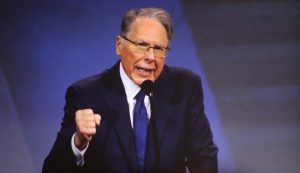
In a legal blow to the National Rifle Association, a federal bankruptcy judge in Texas on Tuesday dismissed the association’s bankruptcy case, saying in his ruling, “The Court finds that the NRA did not file the bankruptcy petition in good faith because this filing was not for a purpose intended or sanctioned by the Bankruptcy Code.”
NRA spokeswoman Amy Hunter released the following statement:
“The NRA remains committed to its members and our plan for the future,” says NRA CEO & EVP Wayne LaPierre. “Although we are disappointed in some aspects of the decision, there is no change in the overall direction of our Association, its programs, or its Second Amendment advocacy. Today is ultimately about our members – those who stand courageously with the NRA in defense of constitutional freedom. We remain an independent organization that can chart its own course, even as we remain in New York to confront our adversaries. The NRA will keep fighting, as we’ve done for 150 years.”
Judge Harlin Hale released the 38-page ruling Tuesday. It followed 11 days of trial.
James issued a statement Tuesday afternoon and told reporters in a teleconference briefing she intends to pursue the case she filed last August, seeking accountability and restitution, and possible dissolution of the NRA.
She sued the NRA last August, alleging the association had diverted millions of dollars “to fund luxuries for officials including long time Chief Executive Wayne LaPierre,” Reuters reported.
During her press briefing, James asserted that some NRA officers had used the NRA as their “personal piggy bank.”
NRA earlier this year filed for Chapter 11 bankruptcy protection which LaPierre at the time explained was part of a legal strategy to get NRA out of New York State and reincorporated in Texas. Judge Hale’s decision derails that effort.
“The Court is not dismissing this case with prejudice,” Judge Hale explained in his ruling, “but should the NRA file a new bankruptcy case, this Court would immediately take up some of its concerns about disclosure, transparency, secrecy, conflicts of interest of officers and litigation counsel, and the unusual involvement of litigation counsel in the affairs of the NRA, which could cause the appointment of a trustee out of a concern that the NRA could not fulfill the fiduciary duty required by the Bankruptcy Code for a debtor in possession.”



